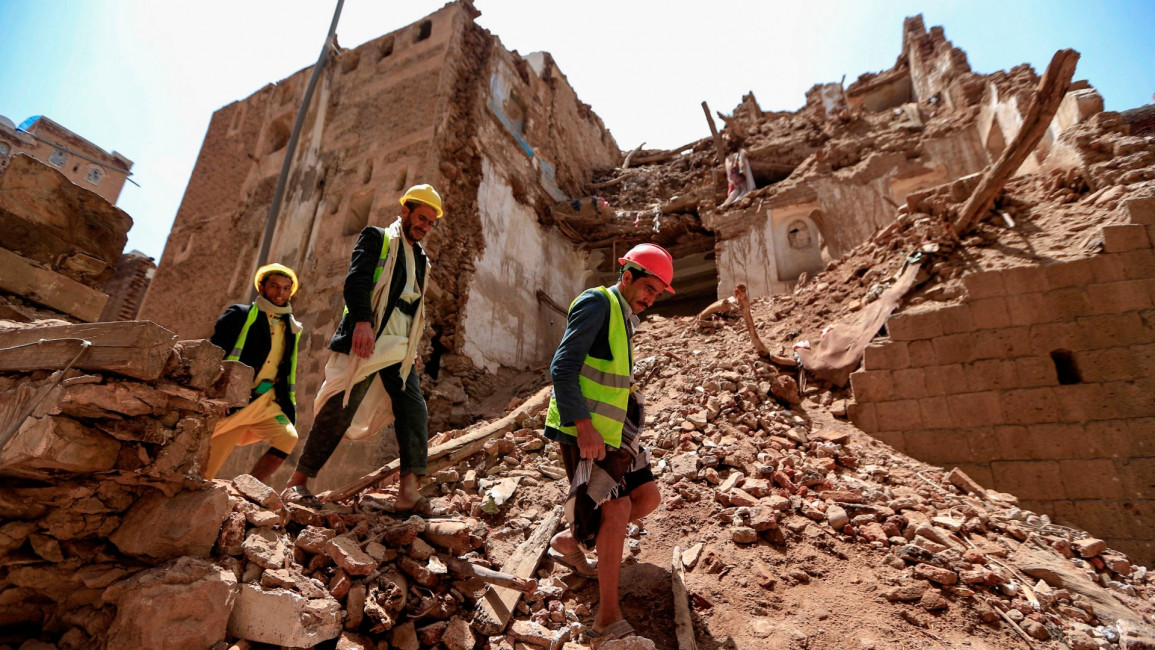Yemen calls for emergency UN Security Council session on Marib offensive
The ministry of human rights in a statement to the UN on Saturday said the rebels have continued to attack the densely populated Marib governate for weeks using heavy ballistic missiles.
The ministry called for "an emergency meeting to discuss the dangerous repercussions that the Houthi militias pose on the lives of Yemenis in Marib", the statement said.
"Urgent measures must be taken to prevent genocide and massacres against the local population and members of the tribes," the statement added.
The remarks come amid weeks of violence in the eastern governate, which has seen the rebels come head to head with local government-backed tribal forces.
The government has yet to announce official numbers, but analysts say hundreds of fighters have been killed in non-stop clashes in Yemen's embattled Marib and neighbouring al-Jawf in recent months.
The escalating military tensions in the desert region have seen power to and fro between the two camps for several weeks after the Sanaa-based rebels launched the offensive into the neighbouring Marib governate.
Twitter Post
|
The Houthi military offensive is thought to be the largest since 2015 when the rebels penetrated into the southern coastal city of Aden, prompting a Saudi-led coalition to intervene.
Several prominent Houthi leaders and high-ranking commanders have been killed in the raging clashes across Marib and Jawf. Footage and images shared online showed a funeral convoy for the Houthi fighters killed in the offensive.
Similarly, a number of senior tribesmen, including the representative of Yemen's Islah party in the parliament, Sheikh Rabish Al-Alayai, have been killed in the ongoing fighting.
"Marib hosts almost 3 million civilians, of which almost 2 million are internally displaced persons [IDPs] that have moved to the governate because it has become safe and secure over the past few years," Nadwa Dawsari, Yemen expert and non-Resident Scholar at Middle East Institute told The New Arab.
"This Houthi offensive puts the lives of 3 million Yemenis at risk - it is a major humanitarian disaster," Dawsari warned.
"If the Houthis do manage to capture Marib, it would solidify their total control of the north and they will not stop there. The next step would be for the rebels to push south towards Shabwah and Hadramawt and even further north to the Saudi border.
"A Houthi capture of Marib will tip the military scales in favour of the rebels - if this happens, we can kiss the peace process, negotiations and any potential for sustainable peace in Yemen's future, goodbye," Dawsari said.
Meanwhile, Yemen’s warring sides on Friday began long-awaited UN-brokered peace consultations in Switzerland on the exchange of prisoners, part of a deal aimed at ending a conflict that has killed thousands and set off the world’s worst humanitarian crisis.
Delegates from Yemen’s internationally recognised government, supported by a Saudi-led military coalition, sat down in Geneva with their rivals, the Iran-backed Houthi rebels, for talks co-chaired by the Red Cross, according to Martin Griffiths, the UN envoy to Yemen.
Read also: Yemen in Focus: Houthi offensive on Marib could determine country's future
Griffiths urged the parties to "release detainees swiftly" and "bring relief to thousands of Yemeni families".
A deal to trade 15,000 prisoners was considered a breakthrough during 2018 peace talks in Sweden.
The negotiations produced a sequence of confidence-building measures, including a cease-fire in the strategic port city of Hodeida. But ongoing military offensives across the country and deep-seated mutual distrust has repeatedly delayed the exchange.
Yara Khawaja, a spokeswoman for the International Committee of the Red Cross in Yemen, said she welcomed the negotiations "for the sake of the families waiting for loved ones to return home".
"It’s in the hands of the parties to the conflict to bring long-lasting positive change," she added.
The office of the UN envoy said it was unclear how long the Geneva talks would take.
More than 100,000 people, mostly civilians, have been killed and millions displaced in Yemen's long conflict which has triggered what the United Nations has called the world's worst humanitarian disaster.
Follow us on Facebook, Twitter and Instagram to stay connected



